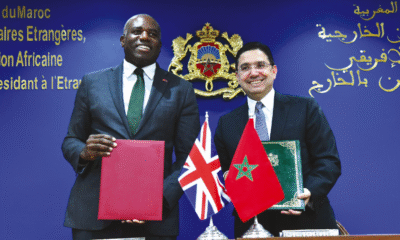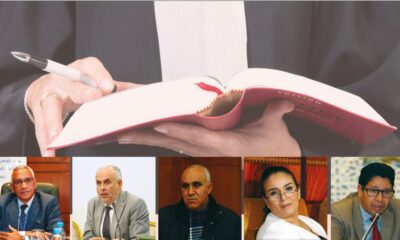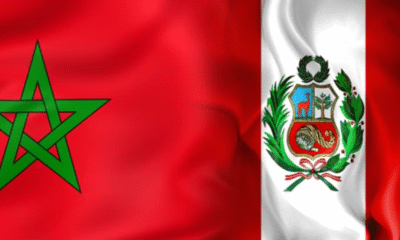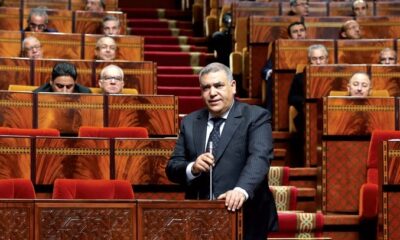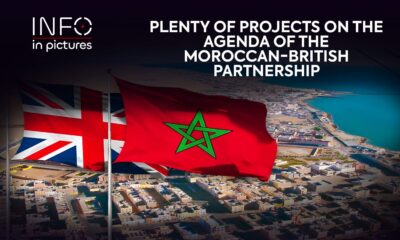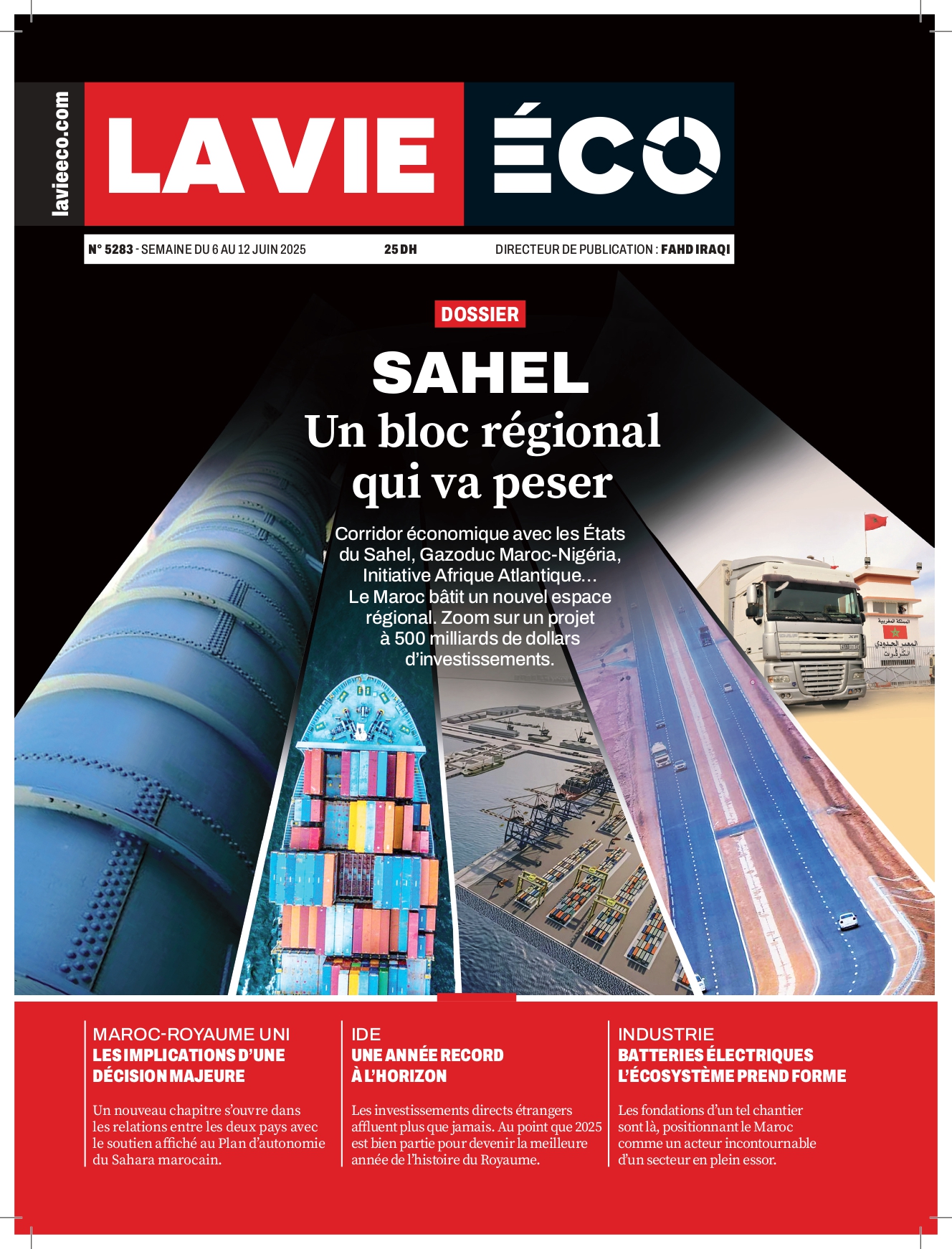Influences
Anasse Bari: «Morocco could become a leader in AI »
Between the need for educational reform, technological investments, and strategic vision, the country has all the cards in hand to become a key player in AI, says this specialist in predictive analytics and artificial intelligence.
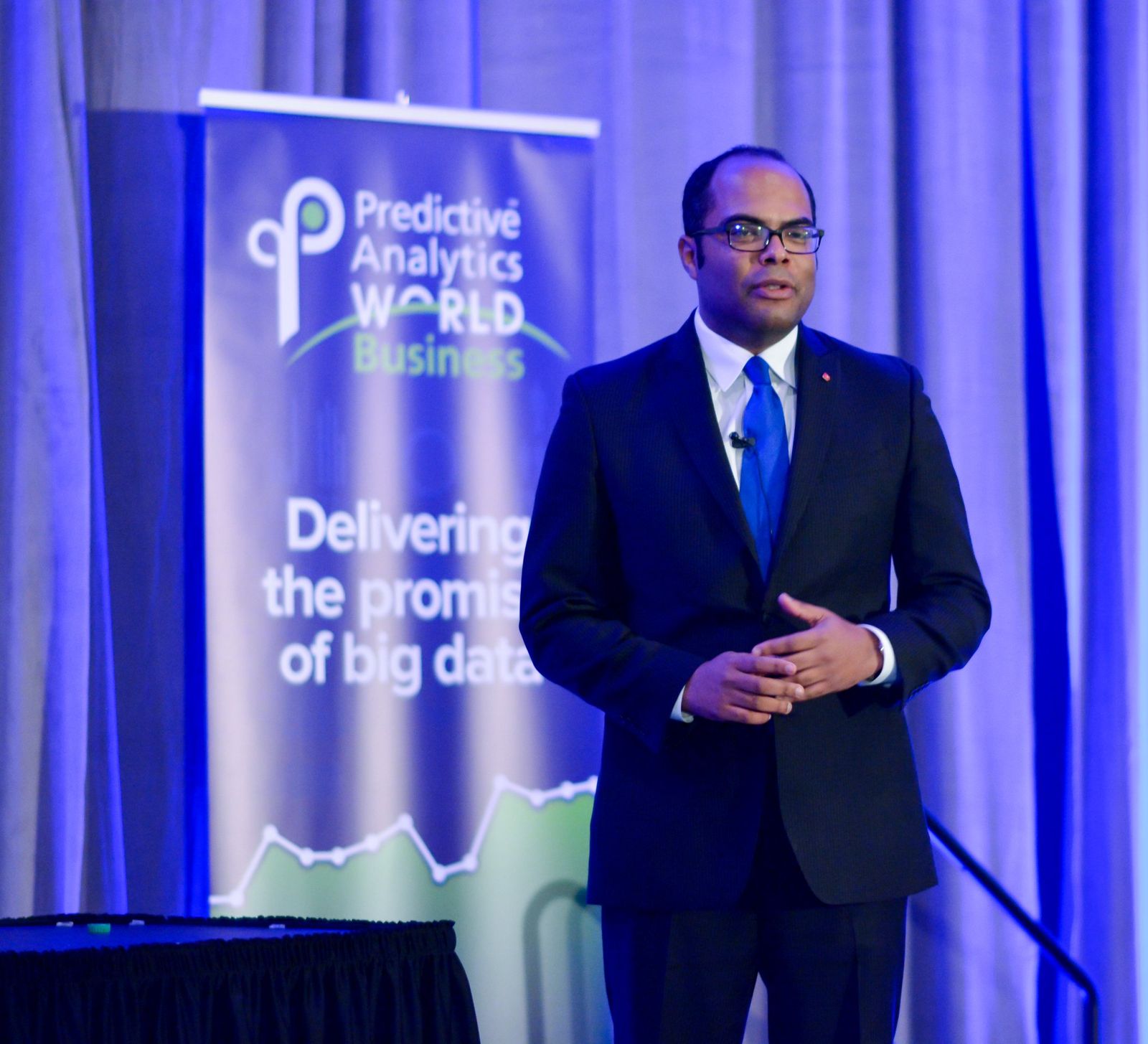
Recently awarded the prestigious «Dr. Martin Luther King, Jr. Faculty Award », Anasse Bari, professor of computer science at New York University (NYU) and director of the Predictive Analytics and Artificial Intelligence Laboratory at the same university, belongs to the generation of researchers for whom technology cannot be conceived without responsibility, nor the transmission of knowledge without commitment. Interview.
AI and predictive analytics, you make them your big focus at NYU…
In artificial intelligence, we explore fundamental techniques such as machine learning algorithms, predictive analytics, advanced neural networks, and natural language processing. Special attention is paid to the development and deployment of Large Language Models, examining their architecture, capabilities, and impact in various fields. We also address advanced AI methods like deep learning, reinforcement learning, semi-supervised learning, as well as emerging areas such as AI-assisted creativity and the use of large-scale computing hardware in the AI ecosystem.
In predictive analytics, we emphasize the use of algorithms and data to anticipate future trends. Students are trained to apply these methods for forecasting, decision-making, and optimization, with a particular focus on solving real-world problems. An essential part of our program concerns AI safety, where we study ethical implications, biases, and societal impacts of AI systems. We notably address the need to ensure fairness, transparency, and accountability in AI deployment, as well as risks related to advanced technologies in security and governance.
Are we sufficiently aware of the impact of Artificial Intelligence?
From Netflix movie recommendations to virtual assistants, financial algorithms, and medical diagnostics, AI influences our decisions far more than many realize. Yet, although awareness of its impact is growing, there remains a significant gap in understanding how it works, its limits, and the ethical implications it raises.
Many people use AI-based tools without really questioning how they work, the data they exploit, or the potential biases they may introduce. This lack of knowledge can lead to passive acceptance of automated decisions without questioning their reliability or objectivity. As AI continues to evolve, it becomes essential to strengthen digital literacy and establish greater transparency. By developing a better understanding of these technologies, we can ensure responsible and beneficial use of AI in our society.
You have conducted research on AI and pandemic management, especially during the Covid-19 crisis. Can you tell us more?
One of our major projects involved designing an AI model capable of identifying the highest-risk patients. Thanks to this technology, hospitals were able to better organize their care and anticipate medical equipment needs.
Another key project focused on monitoring vaccine hesitancy. We used natural language processing and emotion analysis techniques to track evolving attitudes toward vaccination on social media. By understanding public reluctance, governments and health organizations were able to adjust their information campaigns and make their communication more effective. This research also allowed us to lay the foundation for an international analytical framework to anticipate and manage future health crises more effectively through AI. Our work, published by the Infectious Disease Society of America (IDSA), has been adopted by several international organizations and governments as a model of best practices.
AI in the service of the common good, you say…
My laboratory has used AI, for example, to analyze election campaigns and provide alternative data-based insights beyond traditional polls. We have also implemented AI tools to accelerate research on new sustainable energy sources, notably in nuclear energy and low energy nuclear reactions (LENR). Finally, our work in finance and economics has leveraged satellite images and other data sources (company reviews, investor call transcripts…) to anticipate economic trends and improve decision-making. Through all these projects, our goal is to develop AI-based solutions that push the boundaries of research while bringing concrete benefits to society.
What AI research projects are you currently leading?
A recent project focuses on artificial intelligence applied to nuclear energy. We collaborate notably with Professor David Nagel on developing advanced AI tools to study a promising new energy source: low energy nuclear reactions (LENR). We have designed Energy LENR AI, an AI-assisted tool to support LENR research, verify experiments, and stimulate scientific advances. Moreover, we have also used these technologies to predict Grammy Award winners and evaluate the impact of sports success on the national economy and culture.
How do you perceive the evolution of AI in Morocco? Are we behind or do we have assets to impose ourselves on the international stage?
Morocco has made progress in AI preparedness, but there is still a long way to go.
It is necessary to modernize programs, adopt innovative teaching methodologies, strengthen technological infrastructures, and improve teacher training. Morocco must also invest in the professional development of researchers and academic administrators.
To establish itself, the country must have a clear and ambitious national AI strategy that prepares new generations for digital challenges. Investments in AI should be prioritized to offer Moroccan students opportunities to compete globally.
By leveraging AI in key sectors such as agriculture, tourism, and renewable energy, Morocco could fully benefit from this technological revolution. With a pragmatic approach, the Kingdom could become a regional leader and beyond in artificial intelligence.
But more…
In water management, AI offers innovative solutions through predictive analytics, allowing anticipation of droughts, optimization of agricultural irrigation, and better distribution of water resources. This technological advance could significantly improve the country’s resilience to climate and water challenges. Agriculture would also benefit from a significant transformation thanks to AI. By optimizing irrigation, forecasting climatic conditions, and monitoring crop status, this technology would increase yields while reducing natural resource waste. Automation and agricultural data analysis would thus contribute to more sustainable and efficient farming. In the tourism sector, AI could revolutionize travelers’ experiences by personalizing offers and anticipating consumption trends. By analyzing visitor preferences and adapting services accordingly, the Moroccan tourism industry would strengthen its attractiveness and competitiveness internationally. Renewable energies constitute another key area where AI could play a fundamental role. Optimizing solar and wind production, as well as accelerating research on new energy sources such as low energy nuclear reactions (LENR), would allow Morocco to improve its energy independence and strengthen its position as a regional leader in clean energy.
In health, AI opens promising prospects with the development of AI-assisted diagnostics and predictive disease analytics. These advances would facilitate access to care and improve treatment effectiveness, contributing to a more efficient and inclusive health system. The financial sector would also benefit from AI capabilities, notably for fraud detection, risk assessment, and financial inclusion through solutions like microcredits. Thanks to these technologies, the Moroccan financial market could gain in transparency, security, and accessibility for a larger number of citizens. Finally, in transport and logistics, AI would play a key role in optimizing traffic and supply chains. By smoothing traffic flow, especially in cities like Casablanca, and improving goods flow management, this technology would reduce congestion and increase transport infrastructure efficiency.
AI raises many ethical concerns, from algorithmic bias to mass surveillance and job replacement. Where should we draw the line?
AI poses major ethical challenges that require a balance between innovation and responsibility. One main issue concerns algorithmic biases. It is essential that AI models be designed transparently and diversely to avoid discrimination.
The question of mass surveillance is also worrying. While AI can be an effective tool to enhance security, it must not be used to restrict civil liberties. Therefore, a strict regulatory framework must be established to ensure ethical use. Finally, AI’s impact on employment requires deep reflection. Rather than opposing AI and workers, policies for retraining and continuous education must be implemented. The goal is to foster collaboration between humans and AI, rather than seeing AI as a threat.
Portrait
Reconstructing Bari’s path is quite a challenge. At best, we can touch on its rough edges. And they are numerous. Driven by academic excellence by graduating top of his class at Al Akhawayn University, the Tangier native set course for the United States and embarked on a PhD at George Washington University, where he explored Swarm Intelligence (distributed intelligence).
An engineer on the Tanger Med port infrastructures, he contributed to automating logistics systems. «At the start of my career, I participated in setting up IT systems to automate crane and ship operations (…), I also led the development of large-scale financial software for A.P. Moller Maersk and APM Terminals », he tells us. At the World Bank, he applied predictive analytics to fight poverty. At NYU, he teaches new generations AI applied to major contemporary challenges: medicine, fighting misinformation, energy sustainability.
«I also had the privilege of advising Wall Street, the United Nations, and other international organizations on various AI-related projects »,Bari confides. While Anasse Bari’s path commands admiration, he always returns to fundamentals: an education forged by rigor and integrity, an unwavering attachment to his Moroccan roots. He speaks emotionally of his mother, Rachida Bargach, who tirelessly repeated to him: «Do honest work, do fair work ». A maxim he has made his own.
«My mission has always been to educate the next generation of thinkers by helping them use AI to save lives, discover new energy sources, and fight data-based discrimination »,he repeats tirelessly. He warns against algorithmic biases and advocates for technology that is neither an instrument of domination nor an amplifier of inequalities. «AI is a tremendous lever for transformation, but its relevance is not measured only in terms of performance; it must also be judged by its impact on our societies », he insists. At NYU, his students are encouraged to see AI as «a tool in the service of the common good ».

